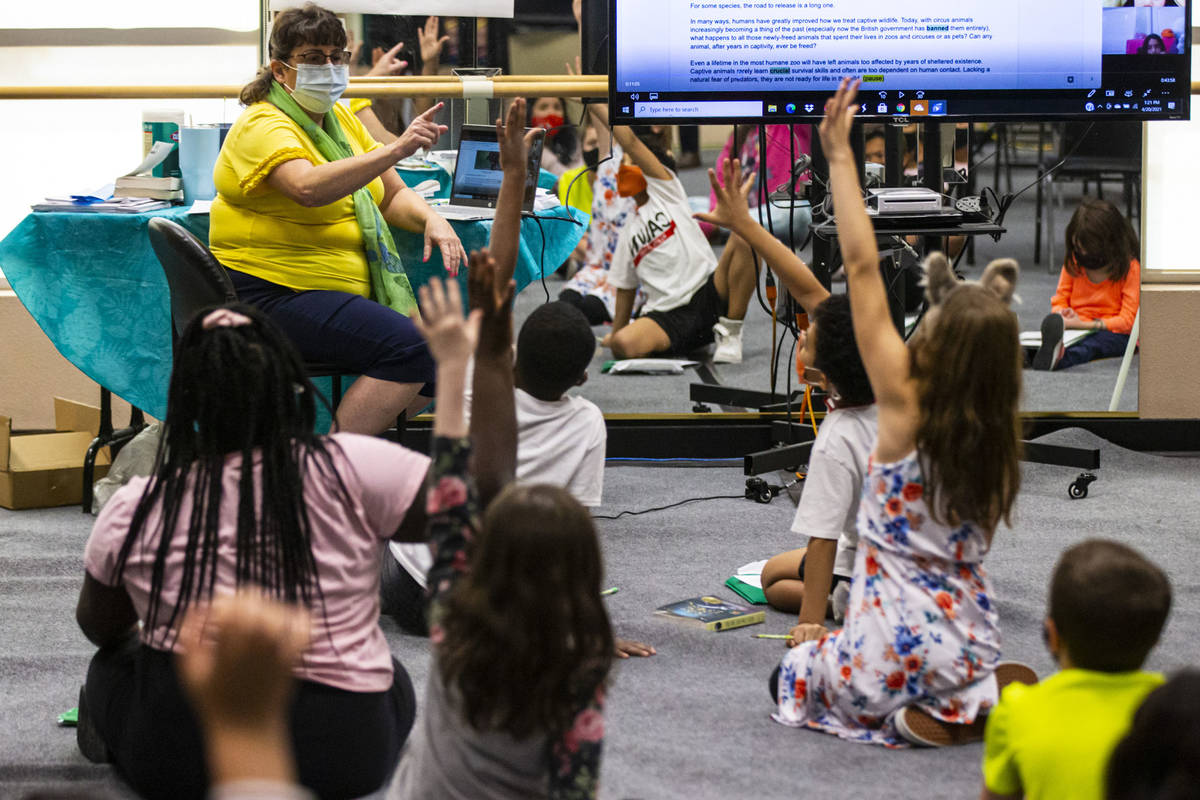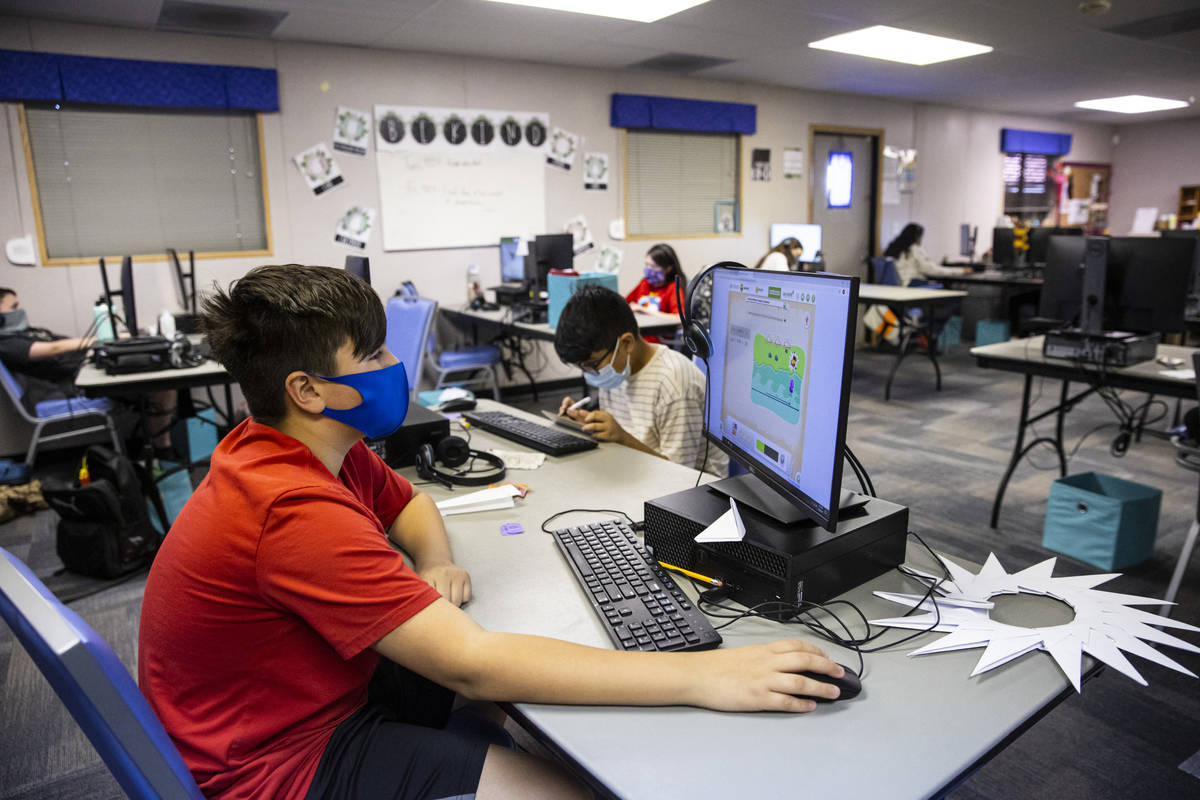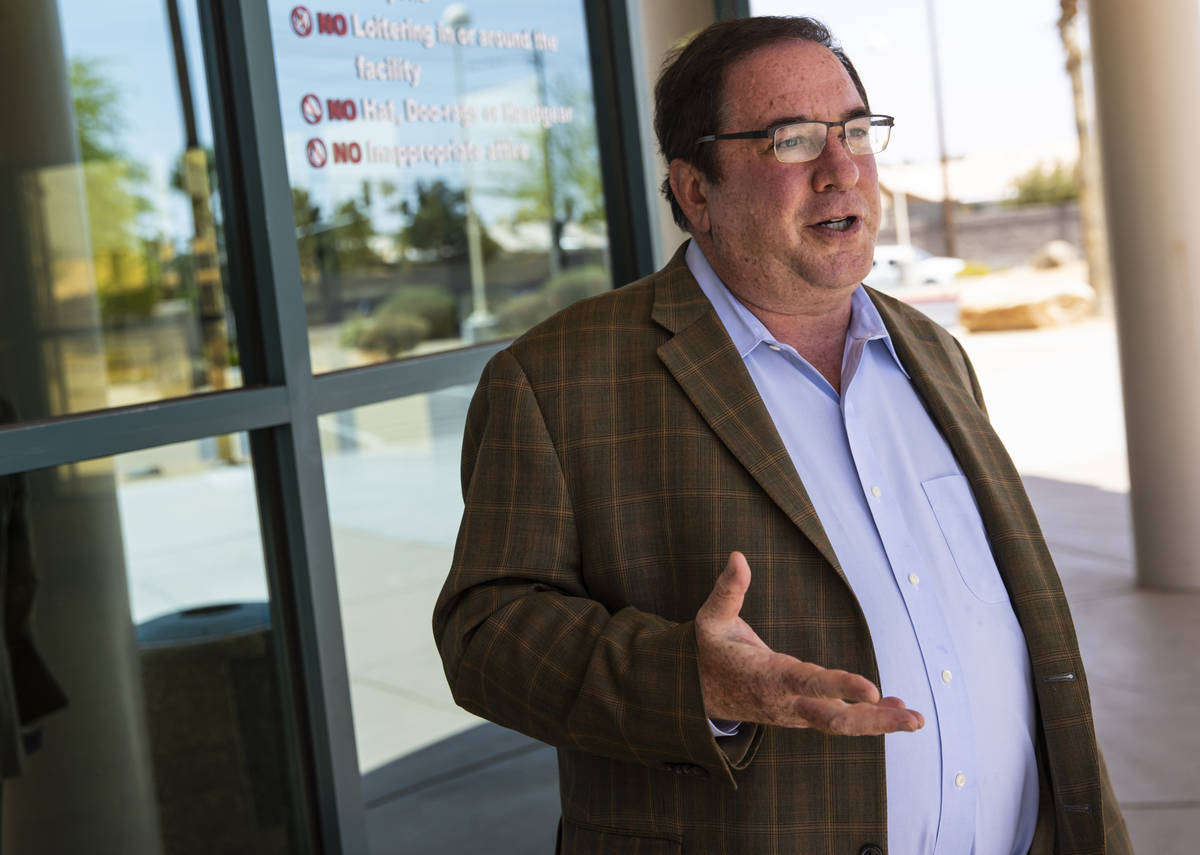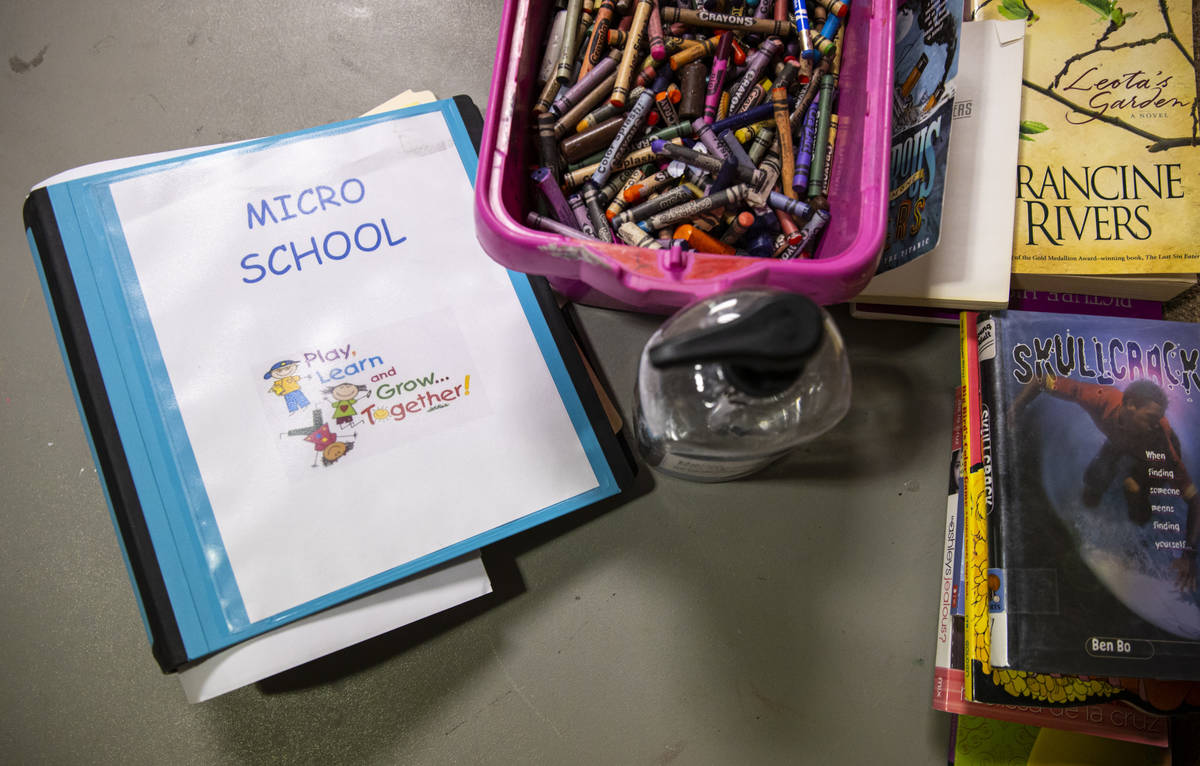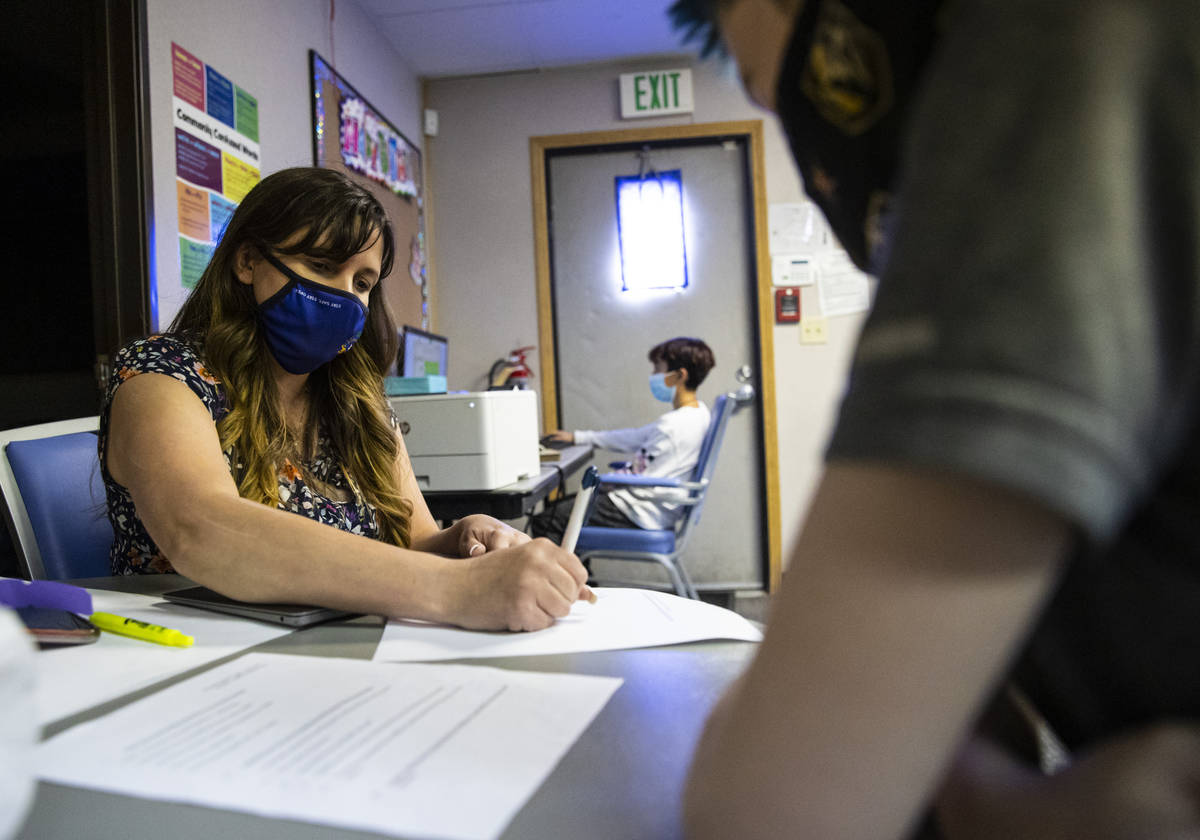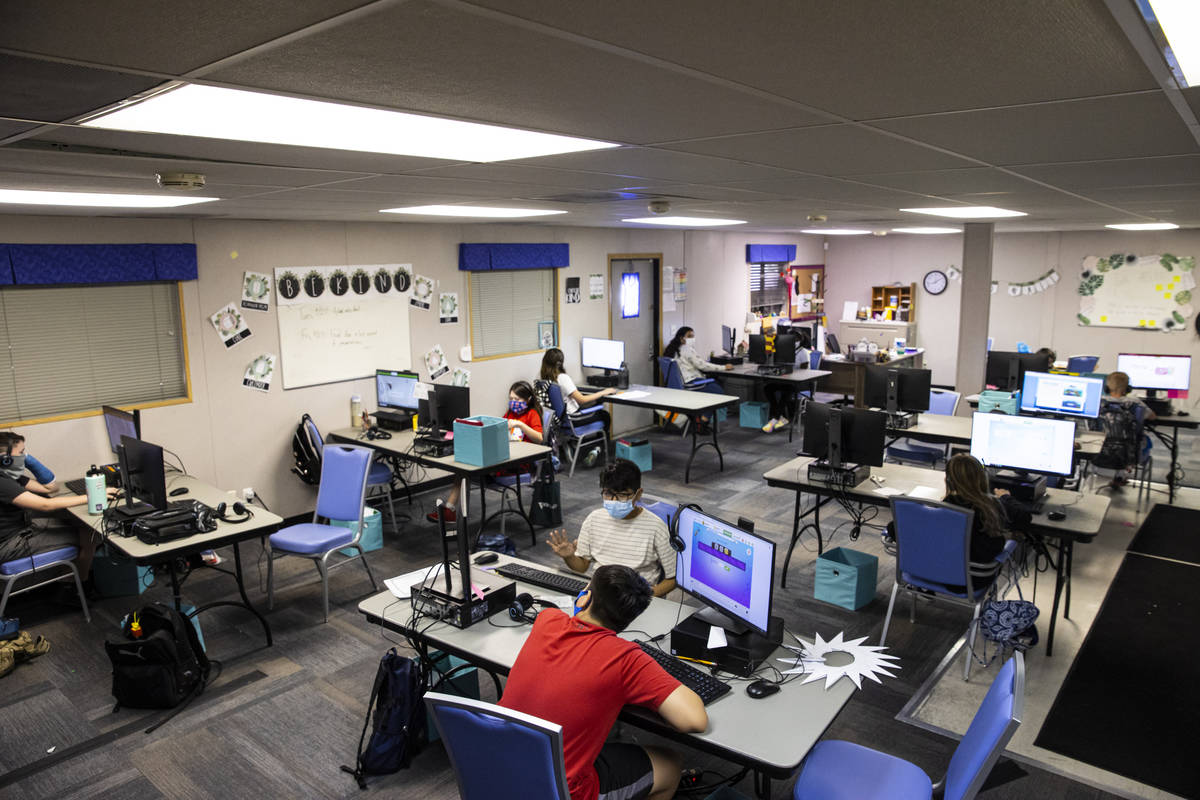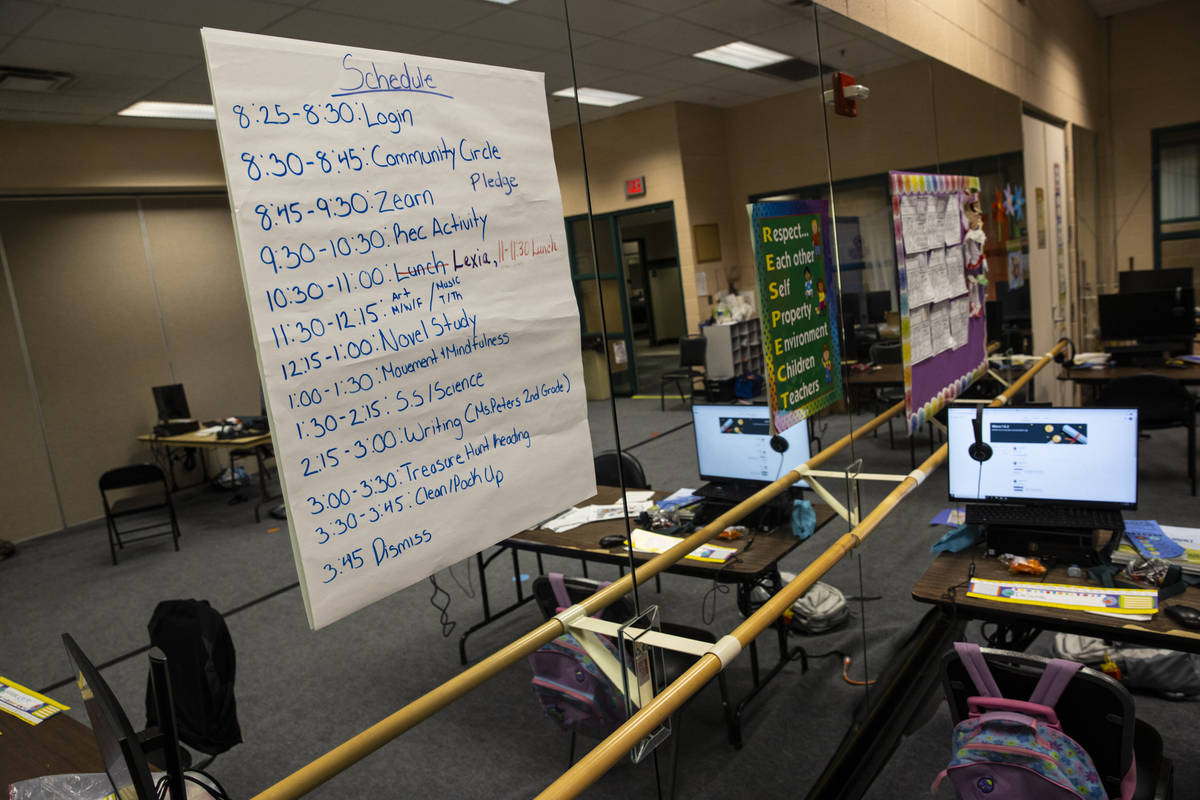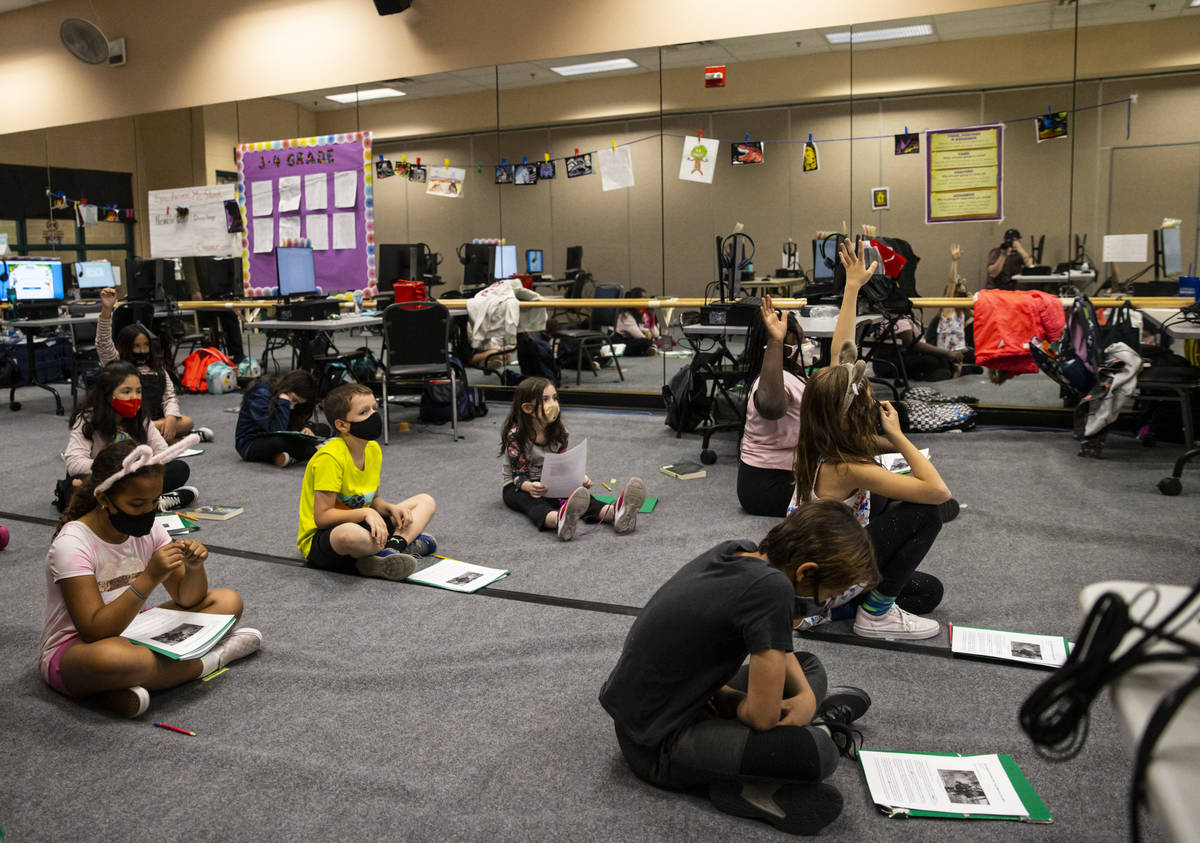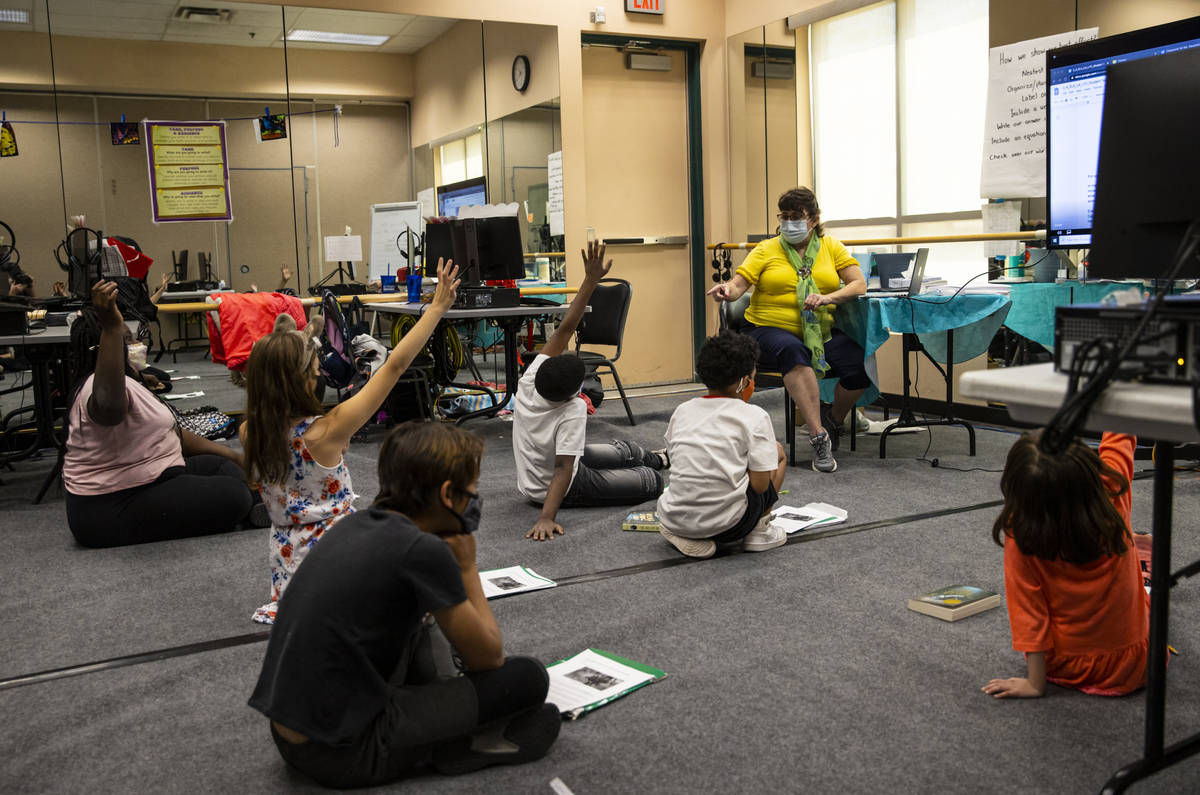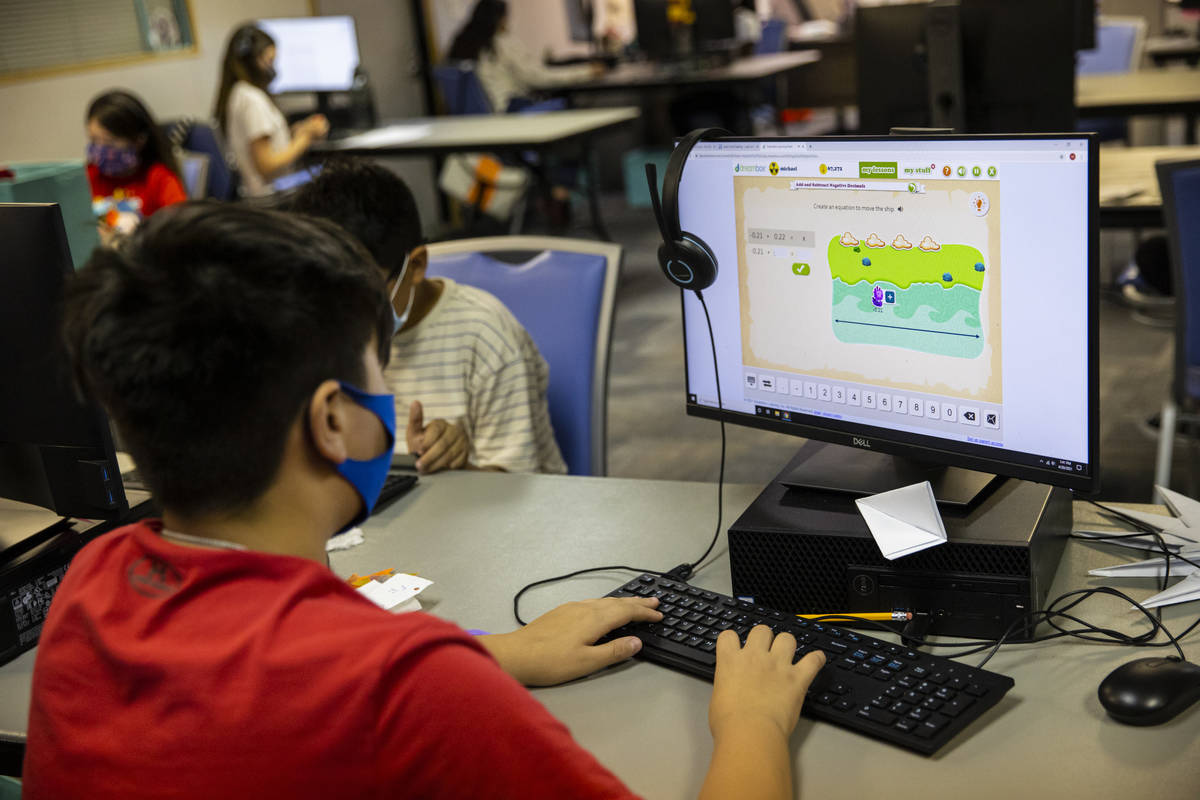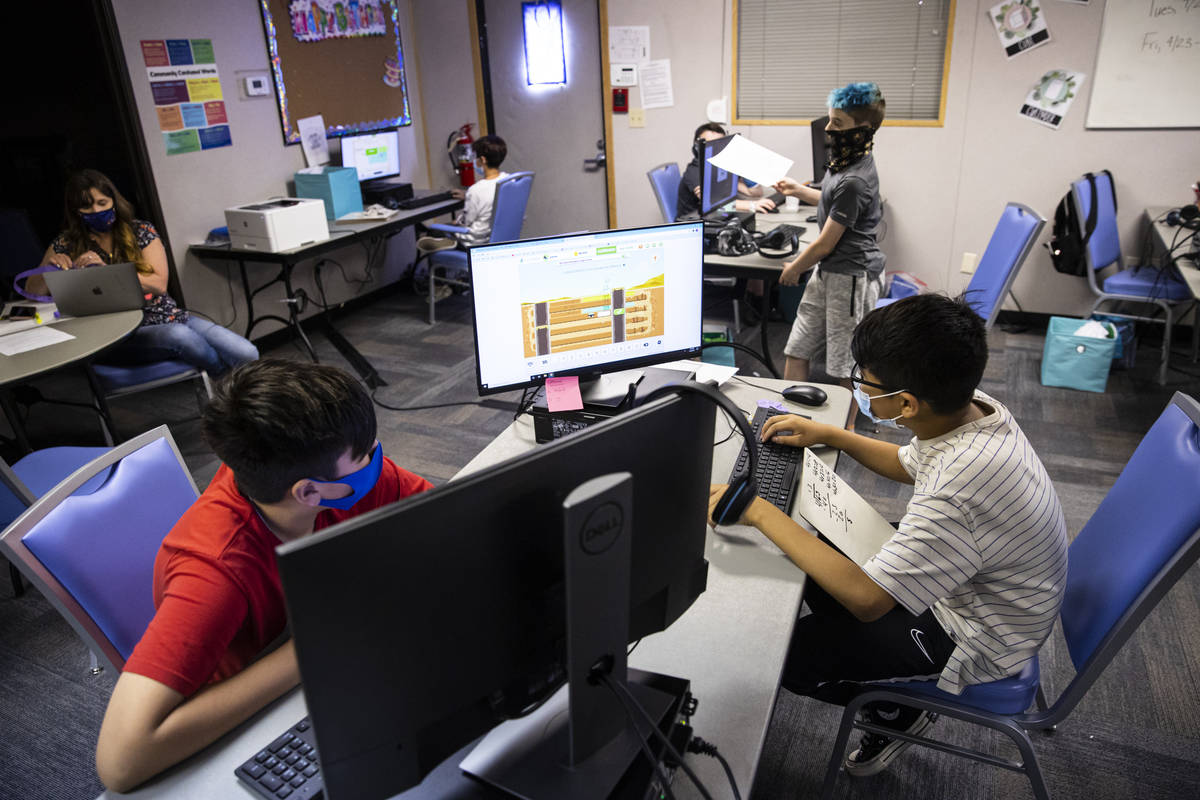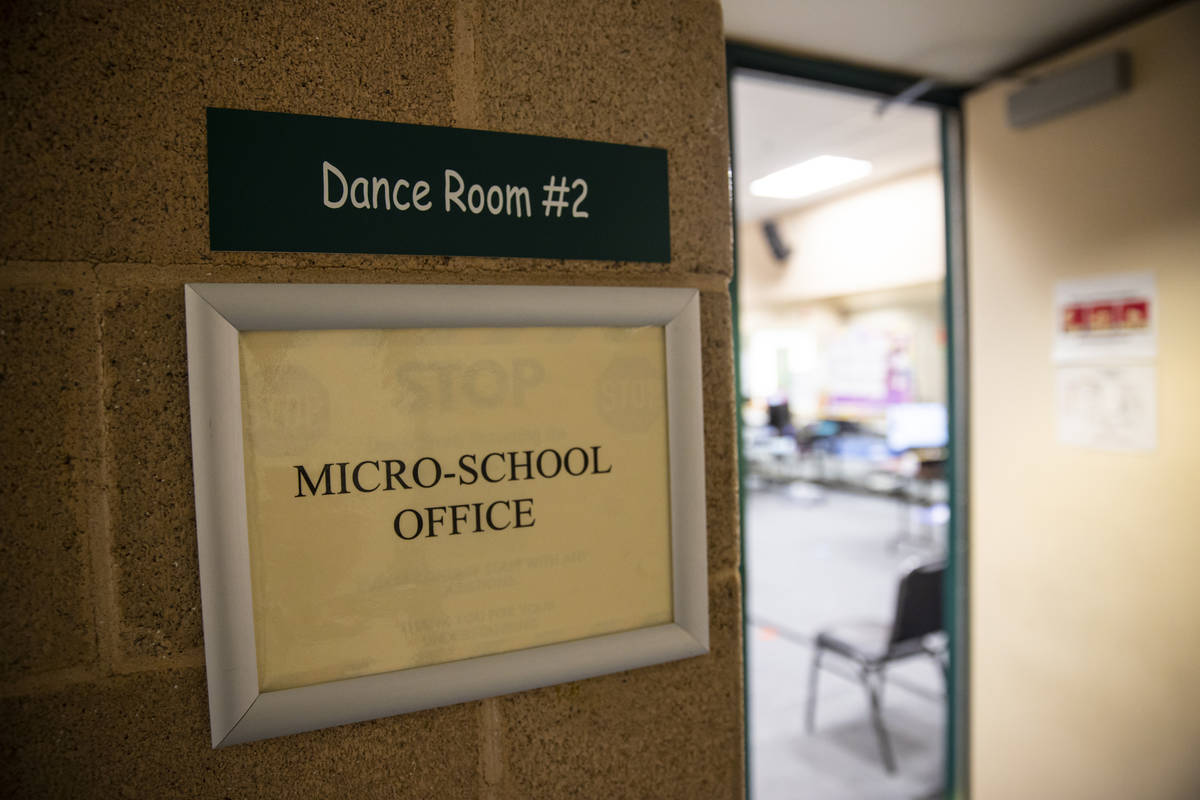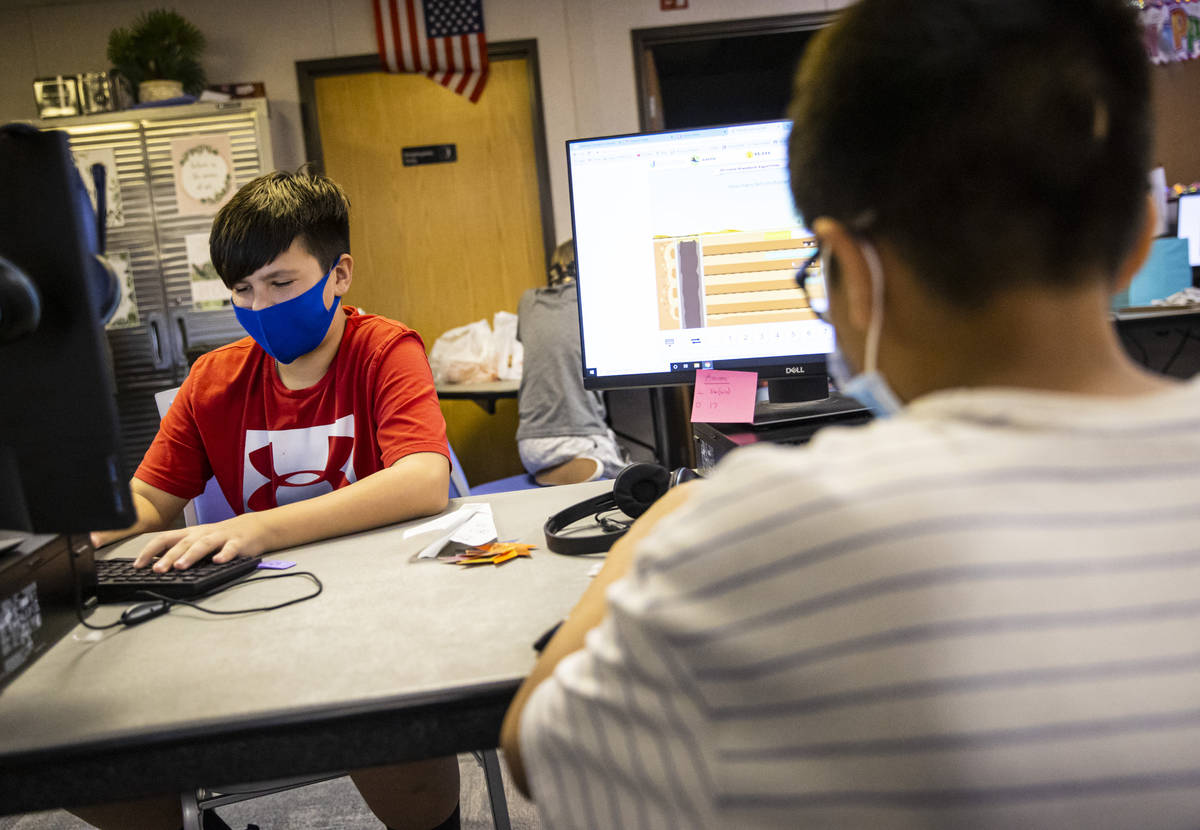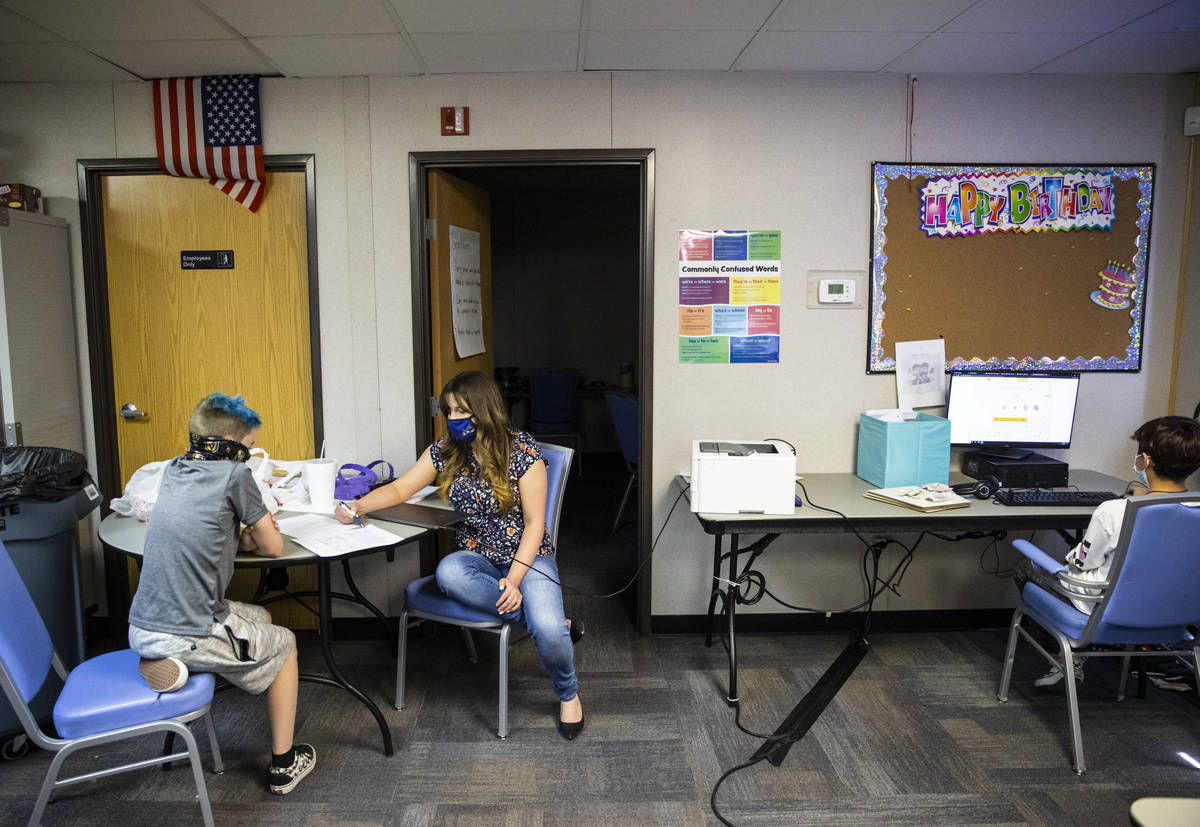Experimental North Las Vegas academy may return next year
The Southern Nevada Urban Micro Academy opened last summer in North Las Vegas as an emergency educational experiment to deal with the fallout of the COVID-19 pandemic.
But now the upstart academy — don’t call it a school — has bigger aims. Its advocates want to give its blend of online and traditional face-to-face lessons a longer run to add to early evidence of its success.
Sheila Parks is one of them. She said she saw her 12-year-old granddaughter struggling with distance learning through the fall and knew something needed to change.
MaKayah Williams, a fifth grader at a Clark County School District elementary school in North Las Vegas, was not completing assignments on time and always felt behind.
“It was very emotionally draining on her,” Parks said. “She really started withdrawing a lot.”
So Parks pulled her from her public elementary school and enrolled her in the Southern Nevada Urban Micro Academy, an educational upstart in North Las Vegas that had been offering in-person classes all school year. The academy is technically not a school and its students are considered home-schooled by the state.
Parks said she has noticed a “total different change” in MaKayah since she began attending.
“She felt as though she was learning things because they were working with her on an individualized basis,” she said. “The lessons were developed based on where she was academically.”
Though MaKayah’s former elementary school is again offering full-time in-person classes now, Parks said she hopes her granddaughter can stick with the micro academy.
It looks like she may get her wish.
A longer stay for program?
Southern Nevada Urban Micro Academy opened in August 2020 as a partnership between North Las Vegas and the nonprofit Nevada Action for School Options, which operates the program. Nearly 100 children in first through eighth grades are enrolled in the academy, which runs at two city recreation centers and one library.
With limited space available because of social distancing and occupancy limits, the program initially prioritized children of first responders and other “essential” city workers” but also worked with public schools to identify kids who were struggling with distance learning.
At the time, North Las Vegas City Manager Ryann Juden told the Review-Journal that the micro academy was expected to be temporary. But now, program founders want it to continue it, saying students are thriving academically and socially. And nearly all of the families enrolled in the program have said they would like to continue if the academy remains open.
At a City Council meeting Thursday, Assistant City Manager Delen Goldberg said that the academy will continue next school year and details are being finalized. She did not identify any source of funding.
The academy was created after the school district announced in March 2020 that it would begin the fall semester with 100 percent distance education because of the COVID-19 pandemic. That policy continued for about a year before students began returning in staggered phases.
The academy was able to provide in-person instruction throughout the period by closely following mitigation measures.
On Tuesday afternoon, MaKayah was in a classroom at Silver Mesa Recreation Center, where fifth and sixth graders were working on either math lessons or a long-term social studies research project. Each student was wearing headphones and had a teal fabric storage cube under their desk with their supplies.
A classroom whiteboard displayed deadlines for assignments. Inspirational signs bearing sayings like “Don’t quit until you are proud” dotted the walls.
Nearby, Tammy Slank’s third and fourth grade students were sitting on the carpet at least 3 feet apart facing the front of the classroom.
The space was originally designed as a dance studio and has a mirror and ballet bar running the full length of one wall. There are tables in the classroom, each with two desktop computers.
Slank was walking students through an online lesson projected onto a screen. Occasionally she paused the recording to ask questions like, “What big idea have we learned from this paragraph?”
‘A rare format’
Don Soifer, president of Nevada Action for School Options and an outgoing member of the Nevada State Charter Authority board, said the micro academy has one feature that makes it quite unusual in the education landscape.
“One of the really interesting things about this is that it’s an active partnership with the city,” Soifer said, calling it a rare format that has garnered national attention.
It also has other aspects that set it apart.
First, participating kids must be withdrawn from their public schools, either a school district campus or charter school.
At the academy, they take mostly online lessons but with support from an adult in the classroom. Meals and before- and after-school care are provided.
The academy had about 45 children during fall semester, but enrollment doubled for spring semester. In response, three classrooms were added at Neighborhood Recreation Center and one at Silver Mesa Recreation Center.
There are now waiting lists, but the academy was able to enroll most kids who were signed up, Goldberg told the council.
“There’s a demand for it. People have seen the results,” she said.
Most children arrived at the academy at least one grade level behind academically, Goldberg said, and now most are doing at least some work at grade level or have advanced beyond that.
The micro academy is not, however, a school, according to state law. Nor has it applied to operate as a private school, said Jessica Todtman, a spokeswoman for the Nevada Department of Education.
The micro academy has 15 employees, and while most are licensed in some capacity, including as teachers or substitute teachers, some aren’t. But for home-schooled children, it’s not a requirement to be taught by a licensed educator.
The academy refers to in-classroom workers as “learning guides.” It also employs “learning interventionists,” who step in to provide support when a student is struggling, plus a full-time music instructor.
Who’s paying for it?
Where is the money coming from to run the program? Largely, it’s from federal coronavirus relief money North Las Vegas has received.
In July, the City Council approved using $320,000 in relief money to subsidize child care, and about $179,000 of that was for the micro academy. Then in December, the council unanimously voted to spend about $144,000 to continue the academy during spring semester.
As for next school year, City Councilwoman Pamela Goynes-Brown said the city is again planning to use federal dollars to support it but are awaiting guidelines on how the money can be spent.
Another funding source: The national VELA Education Fund announced in September that it would provide a grant of up to $150,000 for a Nevada Action for School Options initiative called MicroschoolingNV.
That money is used to manage the micro academy, including personnel management, scheduling and setting learning goals for students, which the city isn’t paying for, Soifer said.
How it works
For third through eighth grades, most of the academy’s curriculum is from Cadence Learning, a provider of online learning software. It offers lessons pre-recorded by a national master teacher, and then the learning guide leads in-person discussions with students.
The program also uses digital programs such as DreamBox for math and Lexia for English/language arts. And writing lessons have been added, too.
Every week, learning goals are set for students before they meet with a learning interventionists to work toward them.
It’s a mastery-based program, meaning students progress when they demonstrate they understand the material.
“The curriculum is basically tailored to meet their needs so they’re not feeling rushed to learn a concept in two or three weeks,” Goynes-Brown said.
At the City Council meeting, Goldberg, the assistant city manager, shared written testimonials about the academy. One was from eighth-grader Adelmo Calvo, who described it as a caring environment where things don’t get swept under the rug.
“With the teachers being so involved, you don’t see some of the problems that happen in other schools when kids get lost in the shuffle, like bullying, since teachers can see our individual needs and can tell if we are having a hard time,” he wrote.
Contact Julie Wootton-Greener at jgreener@reviewjournal.com or 702-387-2921. Follow @julieswootton on Twitter.



